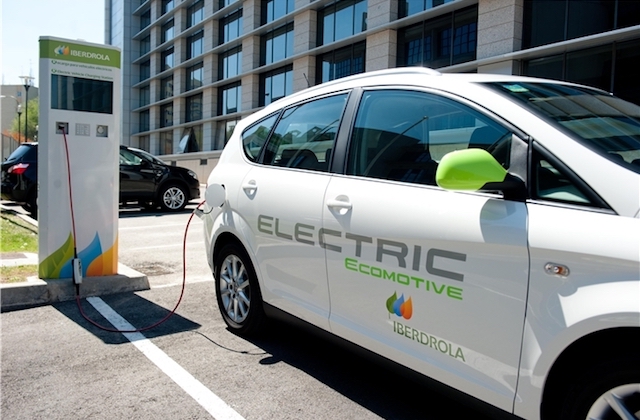Iberdrola Points Finger At Grid Amidst Spain Blackout Controversy

Table of Contents
Iberdrola's Accusation and the Public Reaction
Iberdrola's official statement regarding the blackout centered on claims of significant grid instability, suggesting that deficiencies within the national grid, rather than any fault of their own, were the primary cause of the widespread power failure. This assertion, however, has been met with a torrent of criticism. Social media erupted with anger and accusations, with many users questioning Iberdrola's motives and pointing to the company's own role in the Spanish energy market. News outlets across the country have covered the story extensively, with headlines ranging from outrage to skepticism.
- Iberdrola's official press release: The statement emphasized unforeseen grid fluctuations exceeding acceptable parameters, leading to automatic safety shutdowns to prevent wider damage. Specific details regarding the nature and location of the instability remain limited.
- Public and media reaction: Newspapers like El País and El Mundo published articles questioning Iberdrola's account, citing concerns about transparency and potential conflicts of interest. Social media platforms like Twitter and Facebook were flooded with hashtags such as #IberdrolaBlackout and #SpainPowerCrisis, reflecting widespread public anger.
- Government investigation: The Spanish government has announced a formal investigation into the causes of the blackout, promising to determine accountability and consider potential regulatory changes.
Examining the State of Spain's Electricity Grid
The Spanish power grid, like many aging national infrastructures, faces numerous challenges. Decades of underinvestment, coupled with the rapid integration of intermittent renewable energy sources like solar and wind power, have created vulnerabilities. Aging infrastructure, insufficient maintenance, and a lack of timely upgrades have all contributed to potential instability. The ability of the grid to handle sudden shifts in energy supply and demand, particularly during peak hours or unexpected weather events, is a critical concern.
- Overview of Spain's grid: The Spanish electricity grid, while extensive, is facing increasing strain from the growth of renewable energy. Its capacity to seamlessly integrate this fluctuating energy source poses ongoing challenges.
- Maintenance and upgrade issues: Reports suggest a backlog of necessary maintenance and upgrades to the grid infrastructure, which may have contributed to its vulnerability during the blackout. Specific details are currently under investigation.
- Impact of renewable energy integration: While Spain is a leader in renewable energy adoption, the intermittency of solar and wind power presents difficulties for grid management. The ability to balance supply and demand requires sophisticated technologies and strategic planning.
- Previous incidents: This is not the first instance of grid instability or localized outages in Spain. Past incidents highlight the need for significant investment in grid modernization and improved resilience.
The Role of Renewable Energy Sources
The rapid growth of renewable energy sources in Spain raises questions about their potential contribution to the blackout. The intermittency of solar and wind power – their output fluctuating with weather conditions – presents a significant challenge to grid stability. While renewables are crucial for Spain's energy transition and climate goals, effectively integrating them requires substantial investments in smart grids, energy storage solutions, and advanced grid management systems. Arguments exist on both sides – some claim the renewable energy surge contributed to the instability, while others contend that a robust grid should be able to handle such fluctuations without major incidents.
Potential Consequences and Future Implications
The Spain blackout has significant economic consequences, disrupting businesses, impacting production, and causing widespread inconvenience. Estimates of economic losses are still being calculated but are expected to be substantial. This incident could lead to significant regulatory changes, including increased investment in grid infrastructure and stricter safety regulations. Furthermore, the incident highlights the critical need for greater energy security in Spain and reinforces the importance of achieving a balanced and resilient energy mix.
- Economic losses: The outage resulted in significant production losses across various sectors, leading to substantial economic damage that's still being assessed.
- Regulatory responses: Expect stricter regulations regarding grid maintenance, upgrades, and investment strategies. Increased oversight of energy companies’ roles in maintaining grid stability is likely.
- Impact on Spain's energy goals: The incident underscores the complexities of energy transition, highlighting the need for thoughtful, comprehensive planning to ensure a reliable and sustainable energy future.
Conclusion
The Iberdrola Spain blackout controversy highlights several critical issues: Iberdrola's contested explanation, the fragility of Spain's power grid, and the urgent need for upgrades and improved grid management. The ongoing investigations and public debate will shape Spain's energy policy and infrastructure for years to come. Stay updated on the latest developments in the Iberdrola-Spain grid controversy and follow the ongoing discussion about Spain’s energy infrastructure and the impact of this significant blackout. The implications for Spain's energy future, including its ambitious renewable energy targets, are profound.

Featured Posts
-
 Building The Good Life Strategies For Sustainable Happiness
May 31, 2025
Building The Good Life Strategies For Sustainable Happiness
May 31, 2025 -
 Hotgirl Cau Long Viet Nam Va Muc Tieu Thang Hang The Gioi
May 31, 2025
Hotgirl Cau Long Viet Nam Va Muc Tieu Thang Hang The Gioi
May 31, 2025 -
 Giro D Italia 2025 Route Vatican City To Host Final Stage
May 31, 2025
Giro D Italia 2025 Route Vatican City To Host Final Stage
May 31, 2025 -
 Investigating Houstons Drug Addicted Rat Crisis
May 31, 2025
Investigating Houstons Drug Addicted Rat Crisis
May 31, 2025 -
 Jack White Joins Detroit Tigers Broadcast Hall Of Fame Discussion And Baseball Insights
May 31, 2025
Jack White Joins Detroit Tigers Broadcast Hall Of Fame Discussion And Baseball Insights
May 31, 2025
